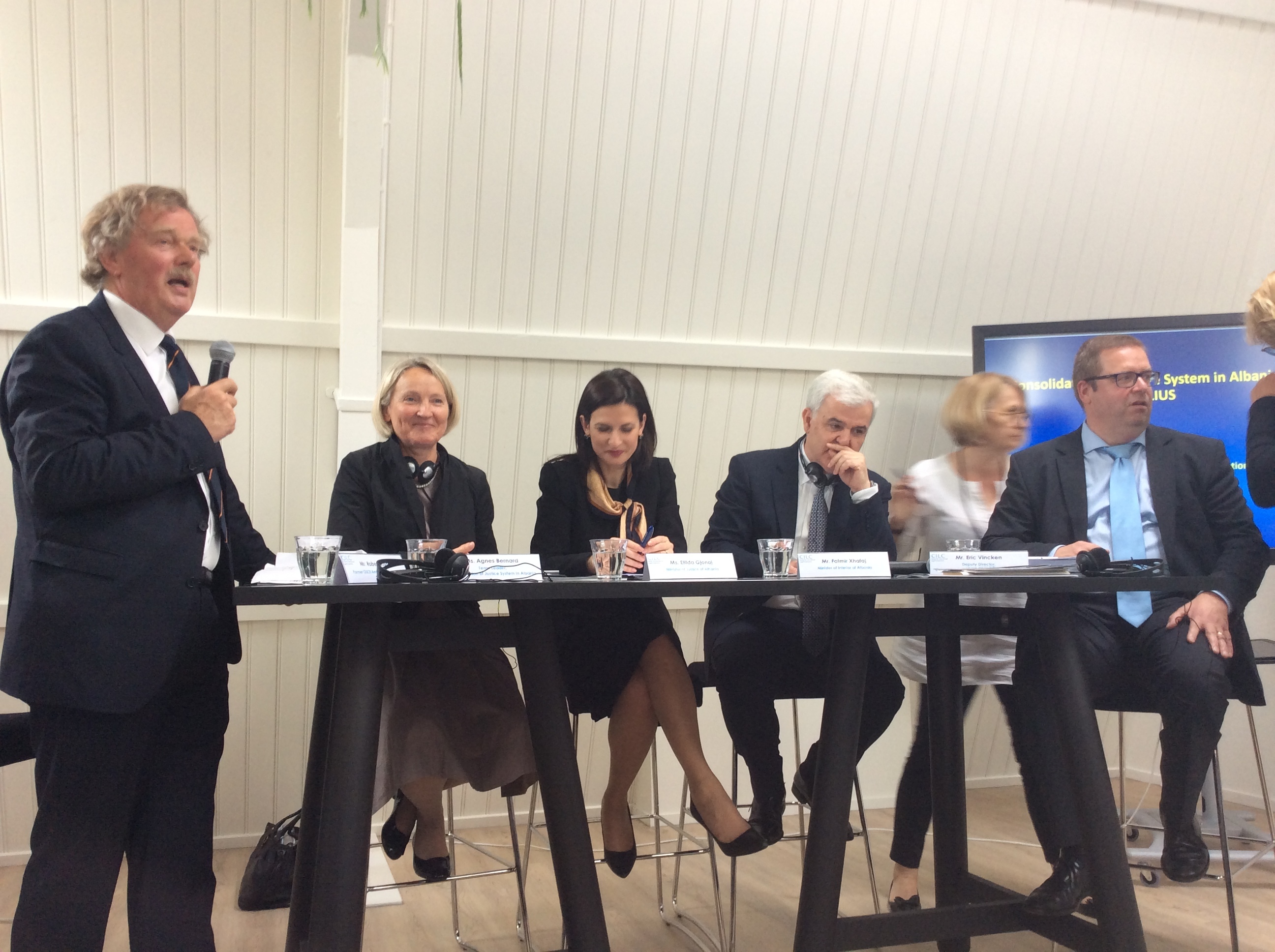
During a debate today on “Rule of Law reform in Albania and the Dutch/EU Contribution,” Minister of Justice Etilda Gjonaj claimed that until a new General Prosecutor has been nominated, Temporary General Prosecutor Arta Marku “has the right to move prosecutors” even though her competences during the transitory period are limited.
Responding to a question of Exit regarding the legal basis for the recent personnel changes implemented by Marku, Minister Gjonaj was unable to cite the legal paragraphs that would substantiate her claim, and handed the question to EURALIUS Team Leader Agnes Bernhard, who was also part of the panel. Bernhard was visibly uncomfortable as she declared:
I am not in charge of these questions. I am not aware of this process. The General Prosecutor should explain this herself.
As Exit explained before, according to Constitution, art. 149/a(1)(a), and Law no. 96/2016 On the Status of Judges and Prosecutors in the Republic of Albania, art. 160(2), the General Prosecutor is not allowed to transfer or appoint prosecutors as long as the High Prosecutorial Council has not been installed. In spite of these legal limitations, Marku has transferred several prosecutors, including those involved in highly political cases, such as the investigation of former Minister of Interior Affairs Saimir Tahiri.
The debate was hosted by CILC, the Dutch partner organization of the EURALIUS mission. In fact, CILC Deputy Director Eric Vincken thanked General Prosecutor Marku for the personnel changes she had implemented in the Prosecution Office, and also claimed – erroneously – that the police vetting was part of the Justice Reform. As Exit explained before, the police vetting does not fall under the purview of the international monitoring mission, and is fully under the political control of Minister of Interior Fatmir Xhafaj, who ironically would not pass the police vetting process himself because of his brother’s conviction for international drug trafficking in Italy.
Both Bernhard’s evasive response and Vincken’s incorrect claims show the severe problems with international oversight over the Justice Reform.
A remarkable role during the debate was played by former OSCE ambassador to Albania Robert Bosch, who used every opportunity to praise the Rama government for its progress as if he himself was the greatest supporter of the country:
I am disappointed with the Netherlands because they lack courage [to open negotiations with Albania]. This is the good thing to do.
The opposition [in Albania] is not a normal opposition because they call their opponents criminals.
Albania has done a really good job. Enormous reforms have taken place and these should be rewarded.
[The Netherlands] is one of the cradles of the rule of law and that’s why we should reward Albania.
That last comment led to slightly embarrassed chuckles from the audience, not used to such profuse praise from a former diplomat who clearly was not up to date on the Albanian political situation.
Bosch closed the debate and Q&A with a question whether there were reporters in the audience. Yours truly and his neighbor raised their hands perfunctorily. Bosch stated: “Good, spread the word because we need to convert people.” I didn’t know it was the role of critical journalism to “convert people” and spread Rama’s gospel. I suppose I missed the memo.

